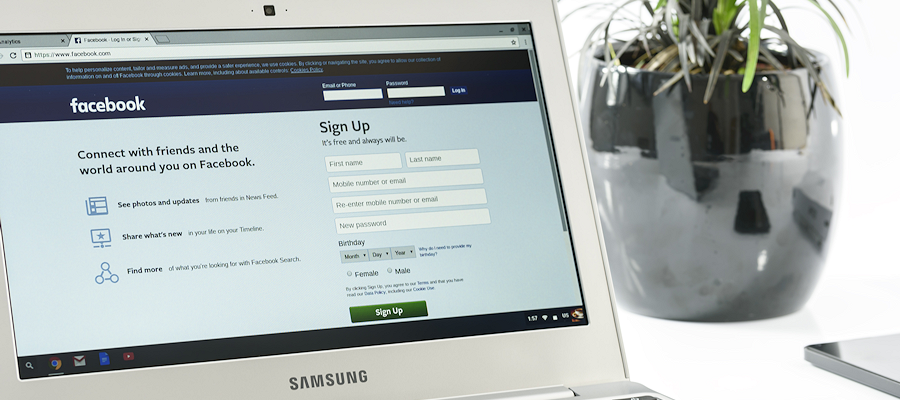
For businesses that sell directly to consumers (B2C) the answer is a resounding ‘YES’, but even if your business is more business-to-business (B2B) don’t ignore Facebook.
Even if you don’t use Facebook personally, don’t fall into the trap of converting your personal account for business use. Always create a proper business Page and complete all the information sections – the About page.
Facebook changes, almost weekly, and the current filters mean that, even though people may have liked or followed your Page, your business posts won’t appear in their feed. “What’s the point in having a Page then?” I hear you cry – and there is more than one reason.
Firstly, if someone does a search for your business or for any of the search terms that your Page is optimised for, your Facebook Page is likely to appear above even your own website. Facebook as a site is visited by millions of people daily and so gets highly ranked on the search engines.
Secondly, a well-managed Page sends a message about your business and your approach to business.
Thirdly, if you know how to use the paid services properly it can be an excellent way to expand your connections, get people to take action and bring in new customers.
What’s a ‘well-managed Page’?
It’s giving both Facebook and your audience what they want. For most Pages that means that someone in your organisation posts daily – and directly onto Facebook. I’m a big fan of social media management platforms like Hootsuite, but for Facebook it’s better to post on Facebook, not from elsewhere.
Make sure your posts offer something that is of interest and value to your target audience. This means links to interesting articles, quizzes, videos, etc. NOT sales pitches for your products or the daily trivia about what’s happening in your business.
Focus on images and short videos. Facebook likes pictures – which is one of the reasons they bought Instagram – make sure you give them what they want. Also most people respond more to image-based posts than text only.
Visit daily to review comments, questions and notifications. Communicate with people in your feed so your audience feels like they’re talking to a real person. Be human!
Isn’t Facebook advertising expensive?
It can be if you don’t get your demographics right, if you don’t know how to create successful ads – or if you forget to set your daily caps.
If you’re paying £1 per click through to your website and the person who clicks through doesn’t take action, that’s £1 wasted. However, if you only pay once the person has actually bought something or completed your sign up form, your £1 is much better spent.
If you limit your spend to – say – £10 a day, you’re in control. The most you can spend in a week is £70 – and if that grows your list by 70 people or gets 70 sales, it’s worth the investment.
Random fact: Did you know that a good return-on-investment for a GoogleAd is 4:1? In other words for every £1 or $1 you spend you get 4 back. That may not seem like a good profit, until you realise that the top internet marketers spend thousands of dollars on Google – and Facebook – ads.
Plan and budget
Don’t just launch a few ads and keep your fingers crossed. Build your Page first with regular posts so your audience actively engages and feels there’s something worthwhile to visit for. It’s no good asking people to like the Page if there’s nothing on it.
- Put a monthly plan together with post themes and gather interesting websites to link to.
- Decide what you want the Page to achieve each month and then plan your activities to work towards that goal.
- If you’re going to use Facebook Ads allocate a budget – for clicks and also for expert help in creating, testing and monitoring your ads.
Follow these basic steps and your Facebook Page could be an excellent business generator.
